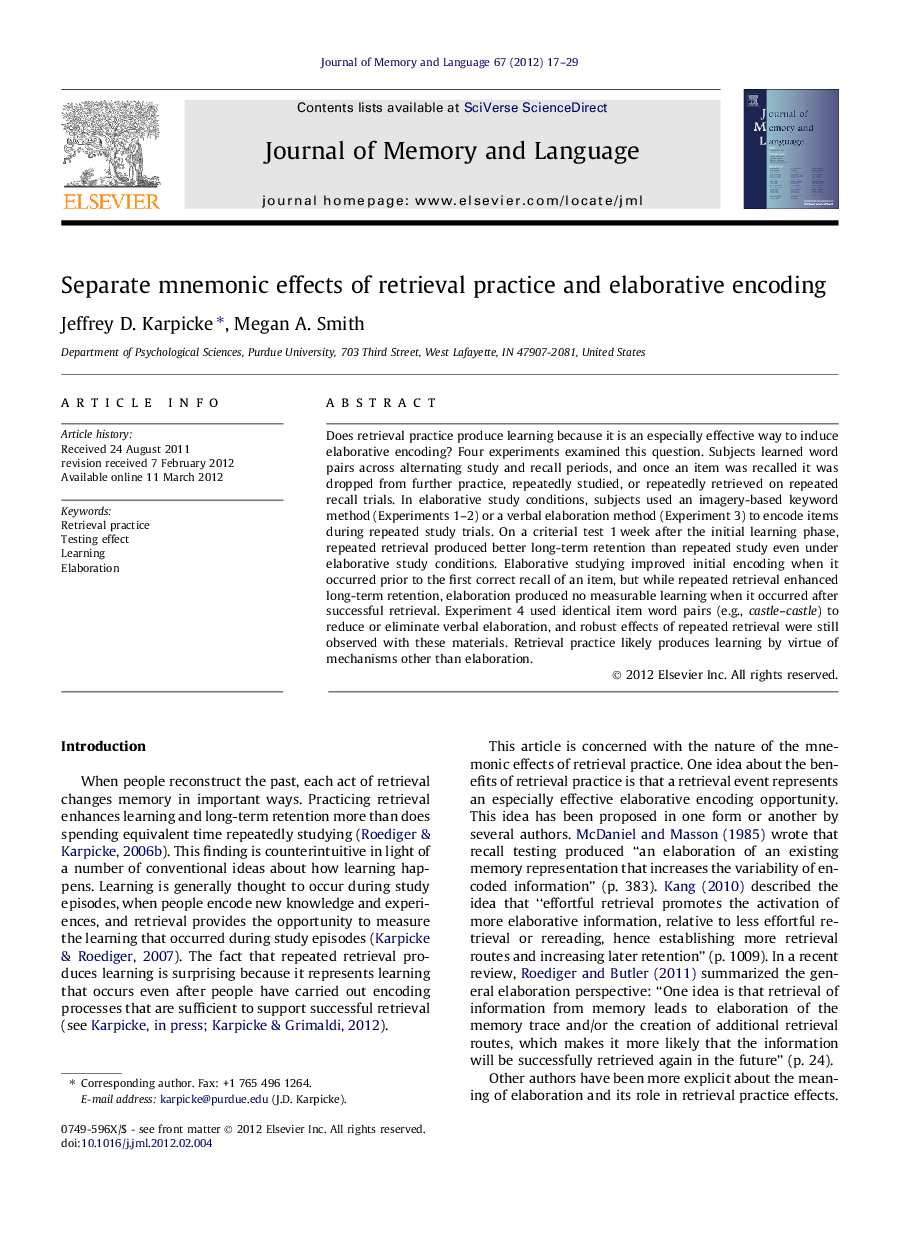| Article ID | Journal | Published Year | Pages | File Type |
|---|---|---|---|---|
| 932014 | Journal of Memory and Language | 2012 | 13 Pages |
Does retrieval practice produce learning because it is an especially effective way to induce elaborative encoding? Four experiments examined this question. Subjects learned word pairs across alternating study and recall periods, and once an item was recalled it was dropped from further practice, repeatedly studied, or repeatedly retrieved on repeated recall trials. In elaborative study conditions, subjects used an imagery-based keyword method (Experiments 1–2) or a verbal elaboration method (Experiment 3) to encode items during repeated study trials. On a criterial test 1 week after the initial learning phase, repeated retrieval produced better long-term retention than repeated study even under elaborative study conditions. Elaborative studying improved initial encoding when it occurred prior to the first correct recall of an item, but while repeated retrieval enhanced long-term retention, elaboration produced no measurable learning when it occurred after successful retrieval. Experiment 4 used identical item word pairs (e.g., castle–castle) to reduce or eliminate verbal elaboration, and robust effects of repeated retrieval were still observed with these materials. Retrieval practice likely produces learning by virtue of mechanisms other than elaboration.
► We compared repeated retrieval practice to repeated elaboration in four experiments. ► Repeated retrieval enhanced long-term retention more than did repeated elaborative studying. ► Retrieval practice likely produces learning by virtue of mechanisms other than elaboration.
